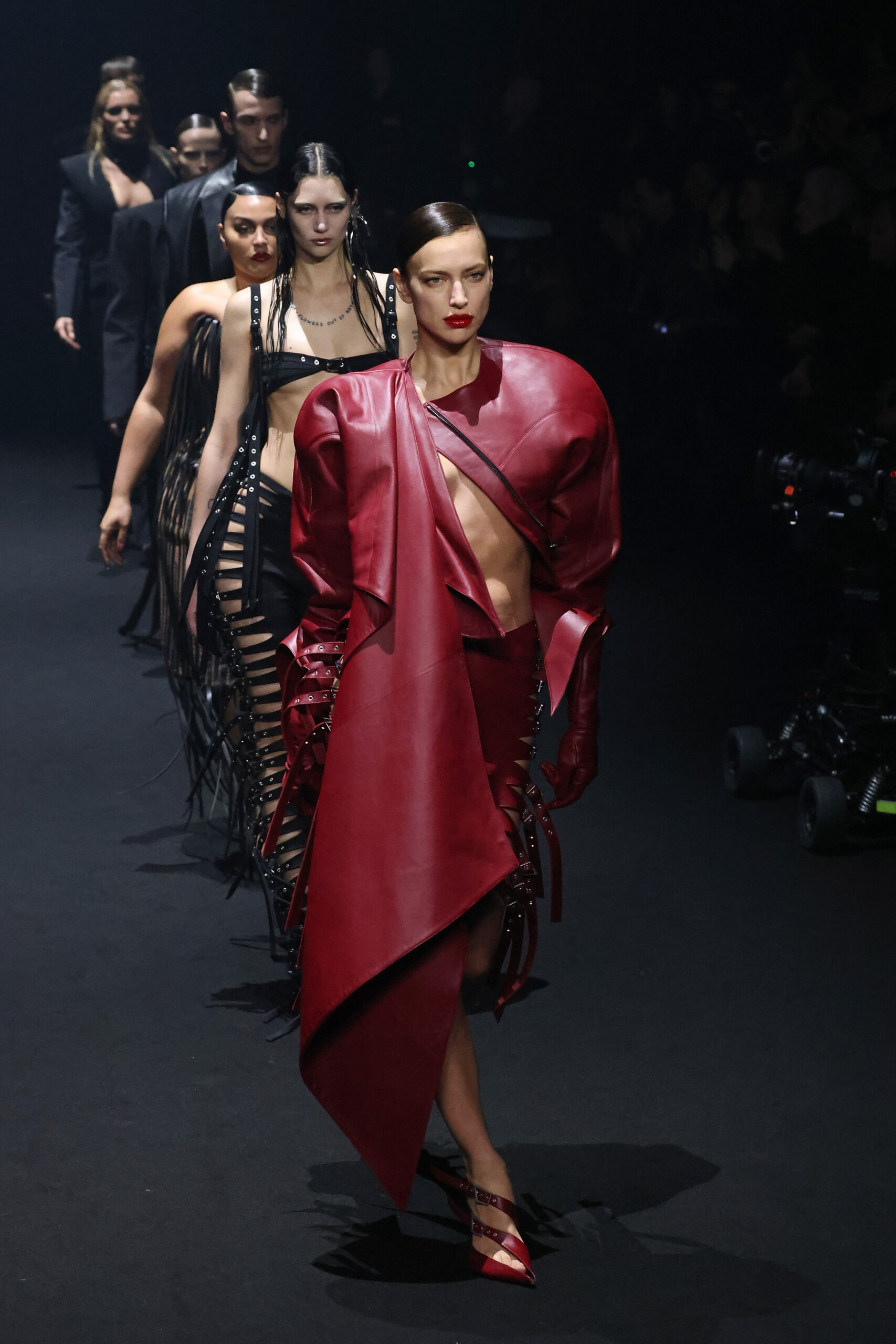
Where his contemporaries seek a quieter approach to luxury under the veil of ‘stealth wealth’, Casey Cadwallader has continued to cement Mugler’s catwalk as a superfluous spectacle during the Fall/Winter 2024 season of Paris Fashion Week.
Theirry Mugler—the enfant terrible, grand couture and great showman behind the eponymous French fashion house—was the master of spectacle. His performances, because dubbing his collection presentations as mere runway shows would be an insult to his legacy, were a parade unrivalled. Yet, when Zendaya stepped onto the Dune 2 red carpet in the archival Mugler “Gynoid” fembot robot suit from Fall/Winter 1995—arguably the most legendary vintage fashion moment in history—it was clear the fashion set piqued an appetite for pageantry.
It wasn’t the hour-long Vegas-style extravaganzas that Cadawaller emulated—perhaps that level of drama will be a reward for our patience—but rather a more confident act of theatre that proved we’ve exited from the era of lycra cut-out bodysuits. (Though these will always have their place in popular culture, just relegated to Dua Lipa performances and the small screen of Real Housewives confessionals.)
Without an overreliance on sculpture, though the collection had no shortage of decisively shaped evening wear, the American designer unfolded his collection over three acts. Toying with the archetypes of silhouette and vignette, curtains dropped from centre stage to progressively unveil the new season offering. Models sauntered down a darkened room, spotlights illuminating the slinky collection as they stepped through dry ice to reach the media pit and posing for flashing lights.
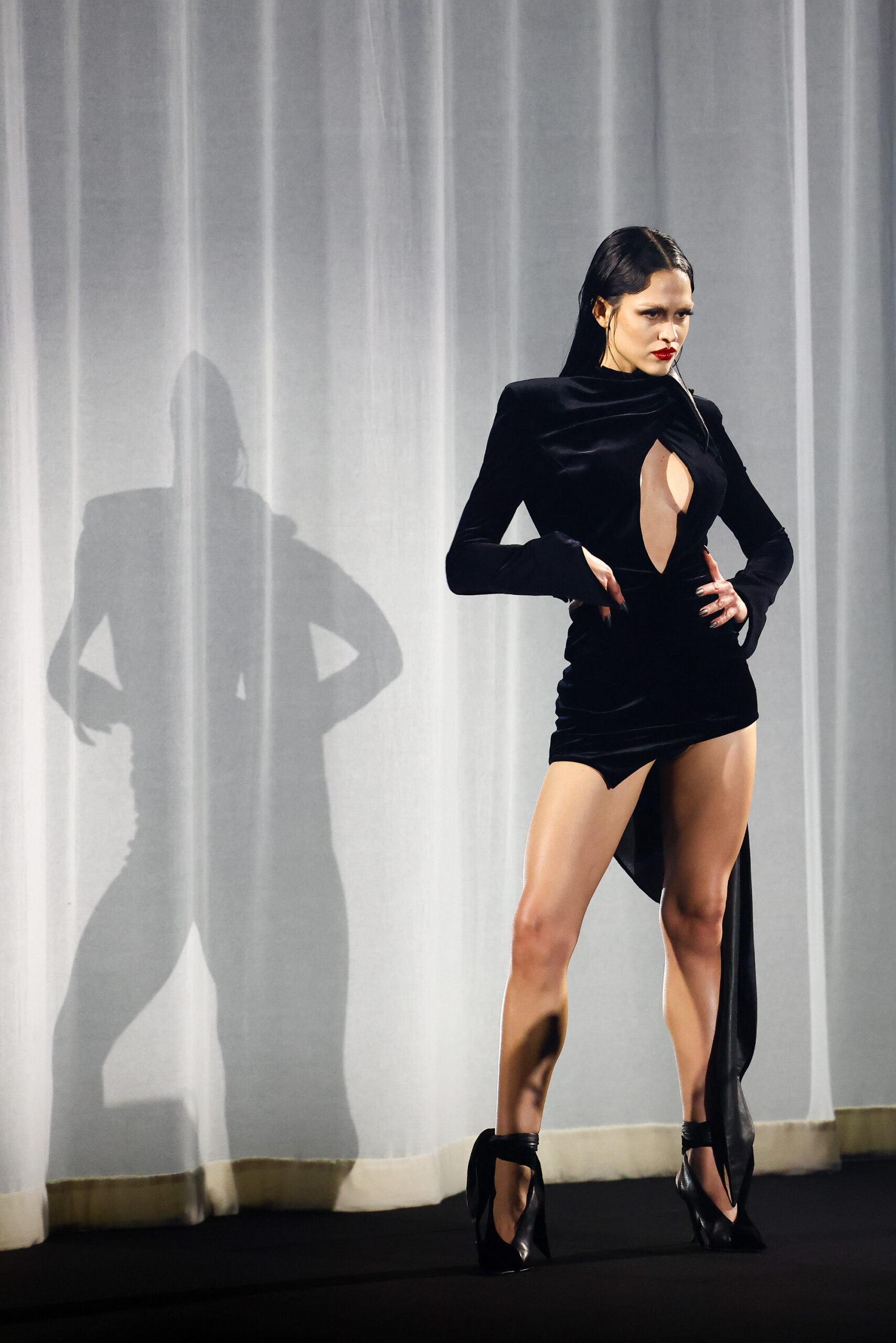
This overcast reverence adhered to Cadwaller’s methodology for the collection: “I really want a more glamorous, dressed-up, decadent, textural creation.” (As reported by VOGUE Runway.) This meant that the body-conscious denim pieces and sporty jersey fabrics of the past were absent here in favour of a seductive, vamped-up approach to after-hours dressing.
The collection opened with musing on revealing form, with layers of undress explored through sheer corsetry, moulded leather and garments designed to appear like they were melting off the models. Some were rendered in sumptuous velvet fabrics that acted like an invitation to come close to the form and explore the plush textile–no doubt a deliberate homage to the debauchery that unfolds in the Parisian booths at haunts like Le Grand Véfour.
Next came a line of printed pieces designed in tandem with Canadian surrealist painter Ambera Wellmann. In asymmetrical skirts with satin trims and lacquered trousers, these pieces evoked a sort of Renaissance romanticism not typically exhibited in the brand. (And no, we’re not excluding the instantly besotted Bee helmet and suit from Beyoncé’s Renaissance tour.)
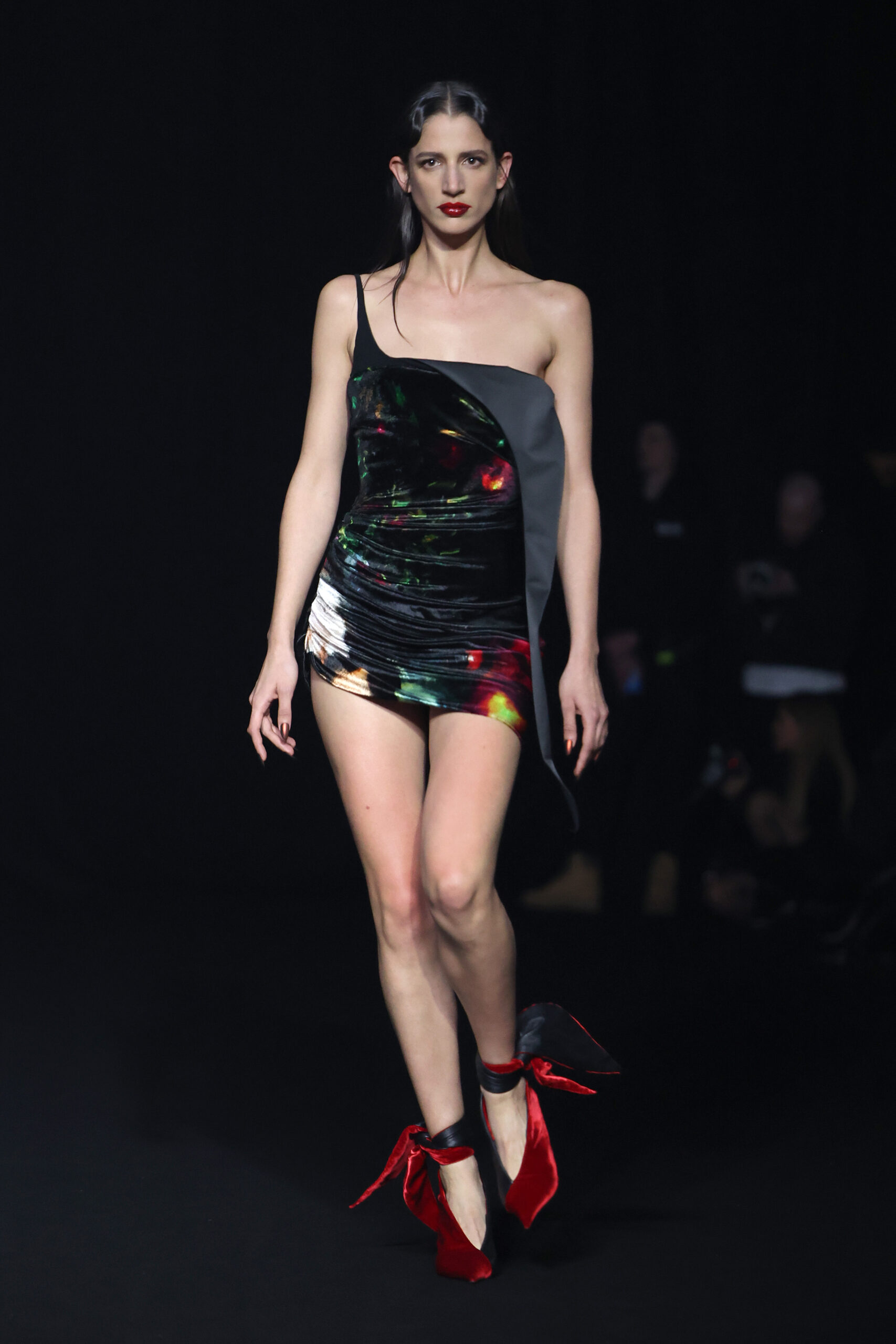
With draping, instinctual tiering and a suite of feathers, Cadawaller dared to achieve the fanfare realised by his precursor. “I’m interested in the ideals and goals of performance and transformation–the idea of clothing that allows you to become a different version of yourself or one of the many versions of yourself that you like to inhabit,” Cadawaller told GRAZIA of the bravado and artistry embedded in both his and Mugler’s design methodology.
“It’s not just about how it feels for the audience to watch a good show, but instead about how the garments shape and provoke and inspire the person wearing them. Who they become when in them. It’s really about the power of clothing, the impact of fashion.”
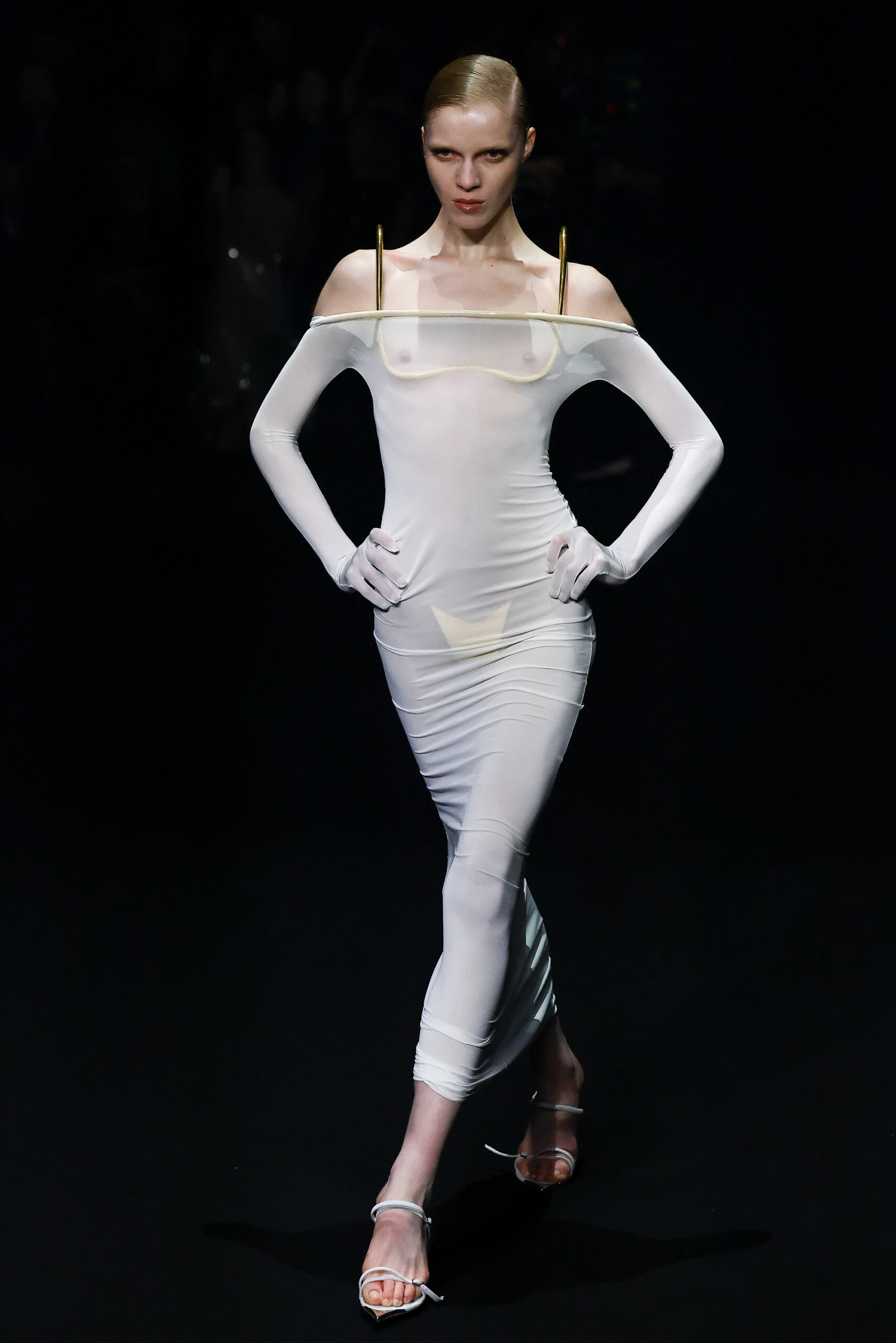
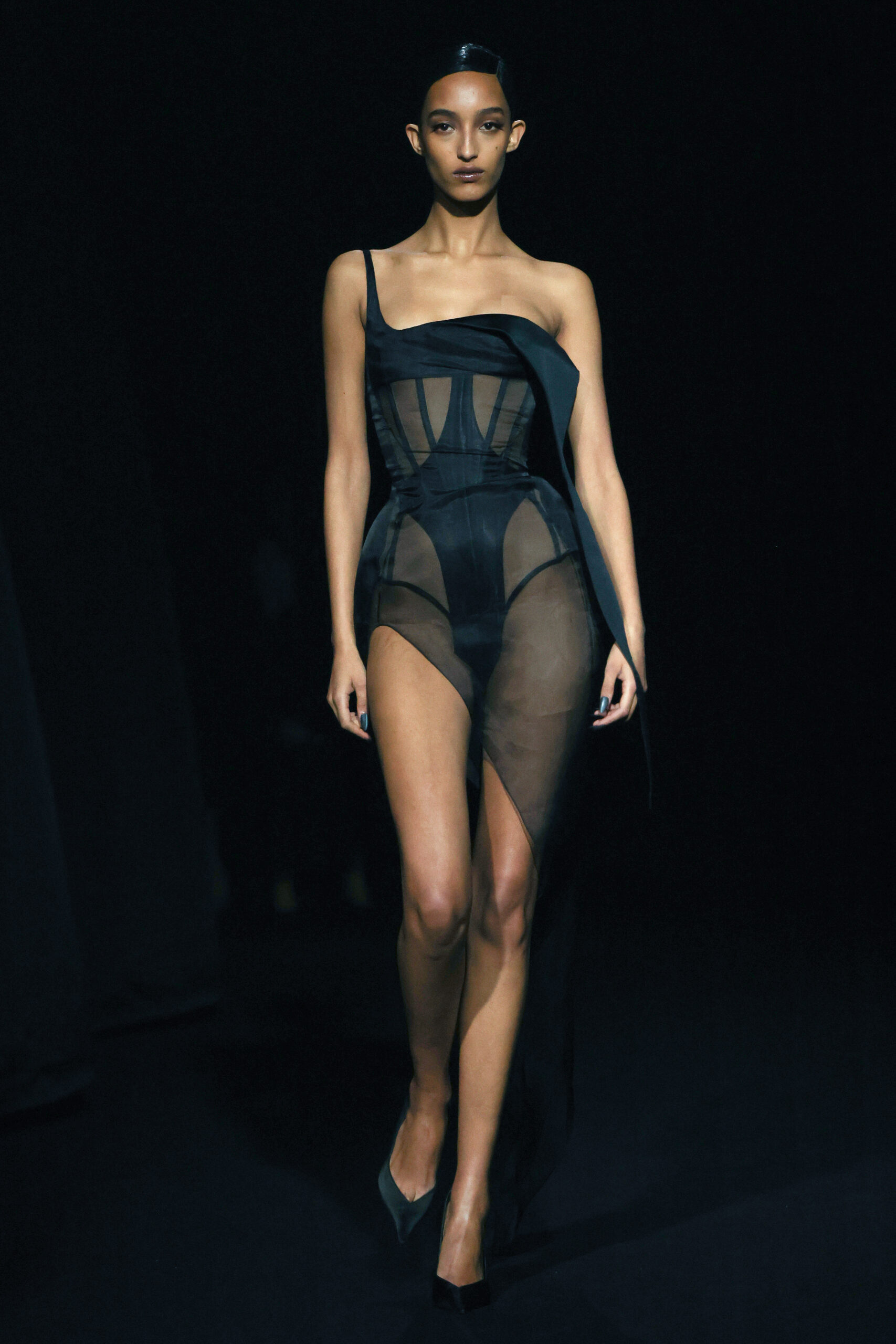
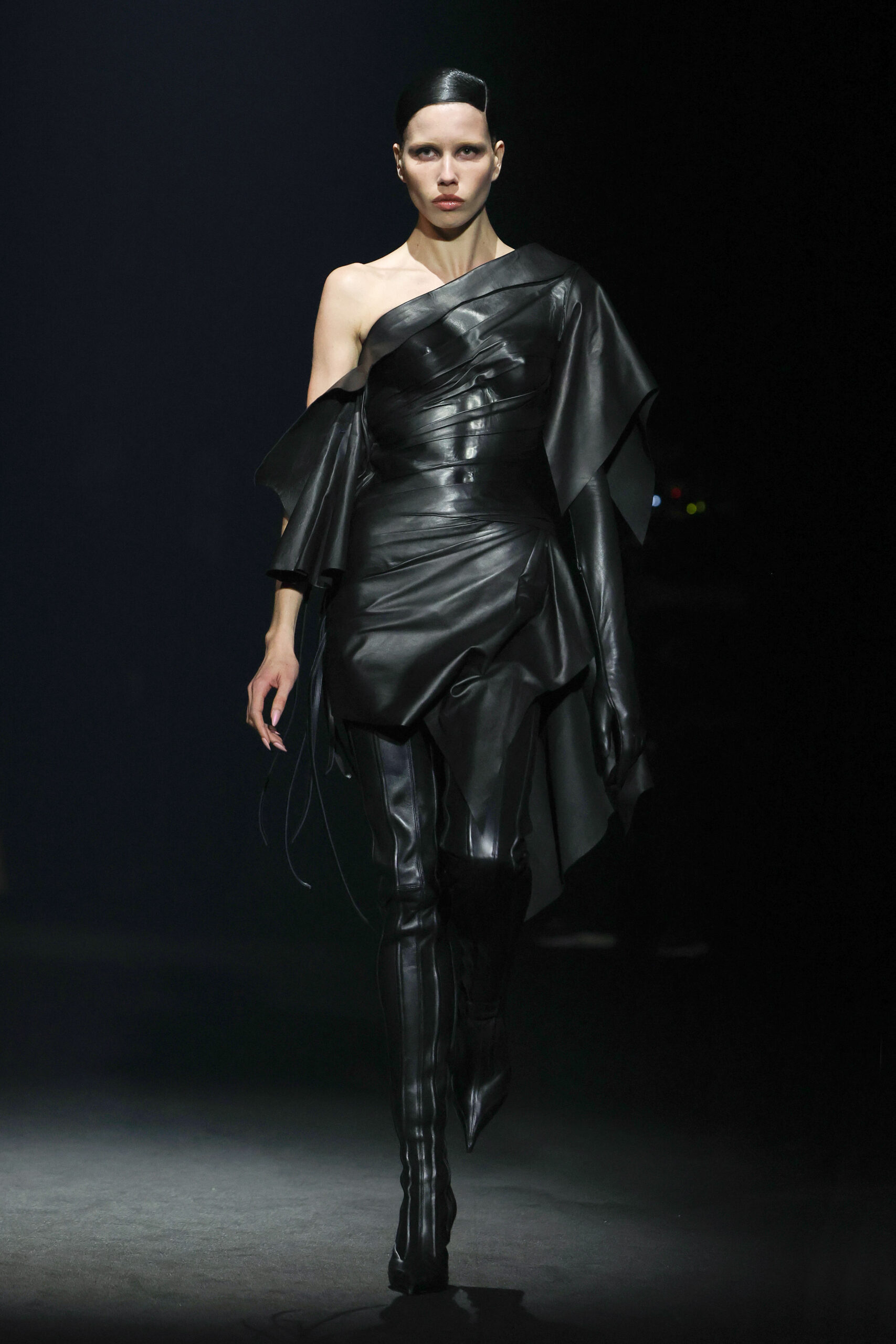
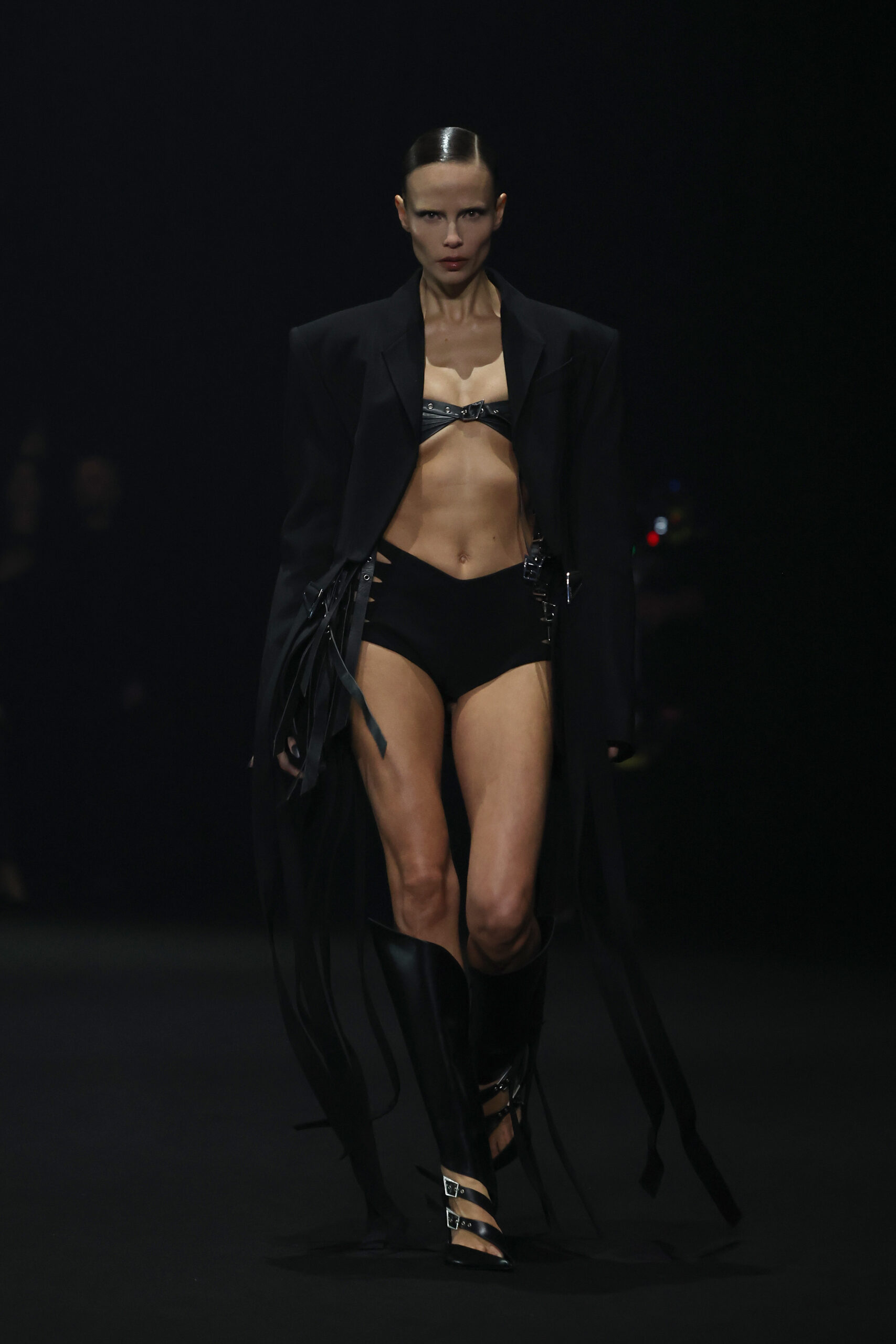
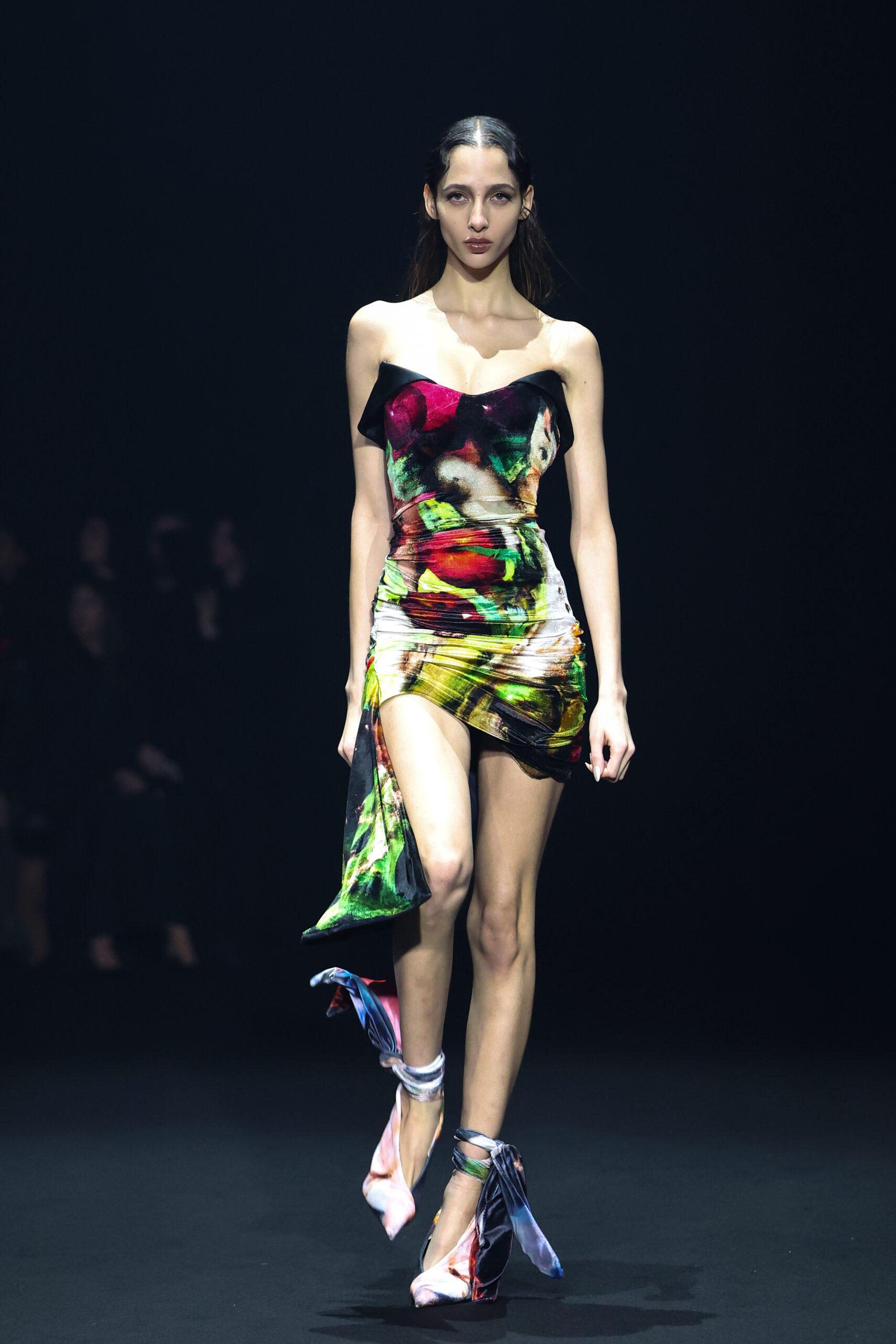
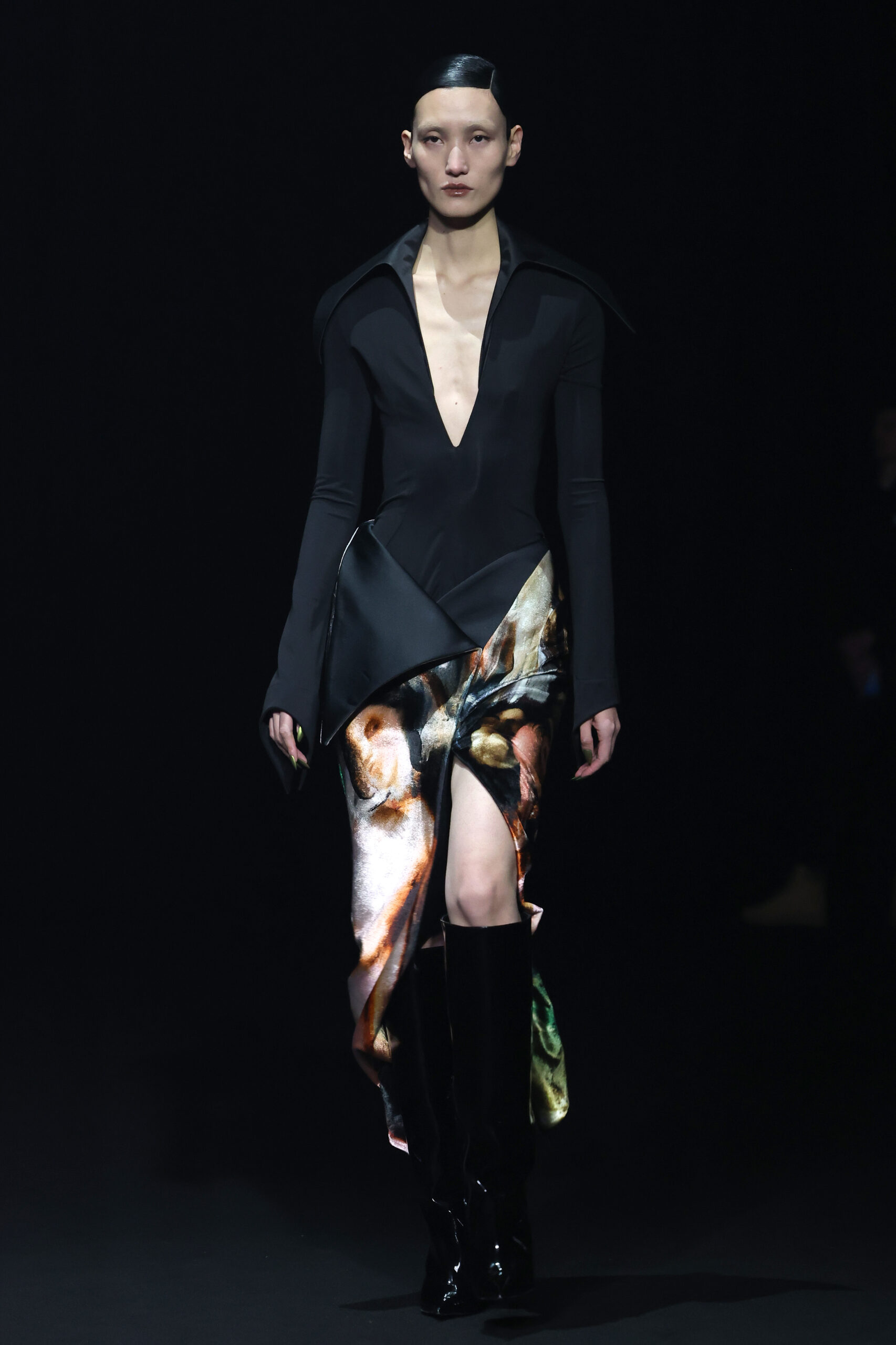
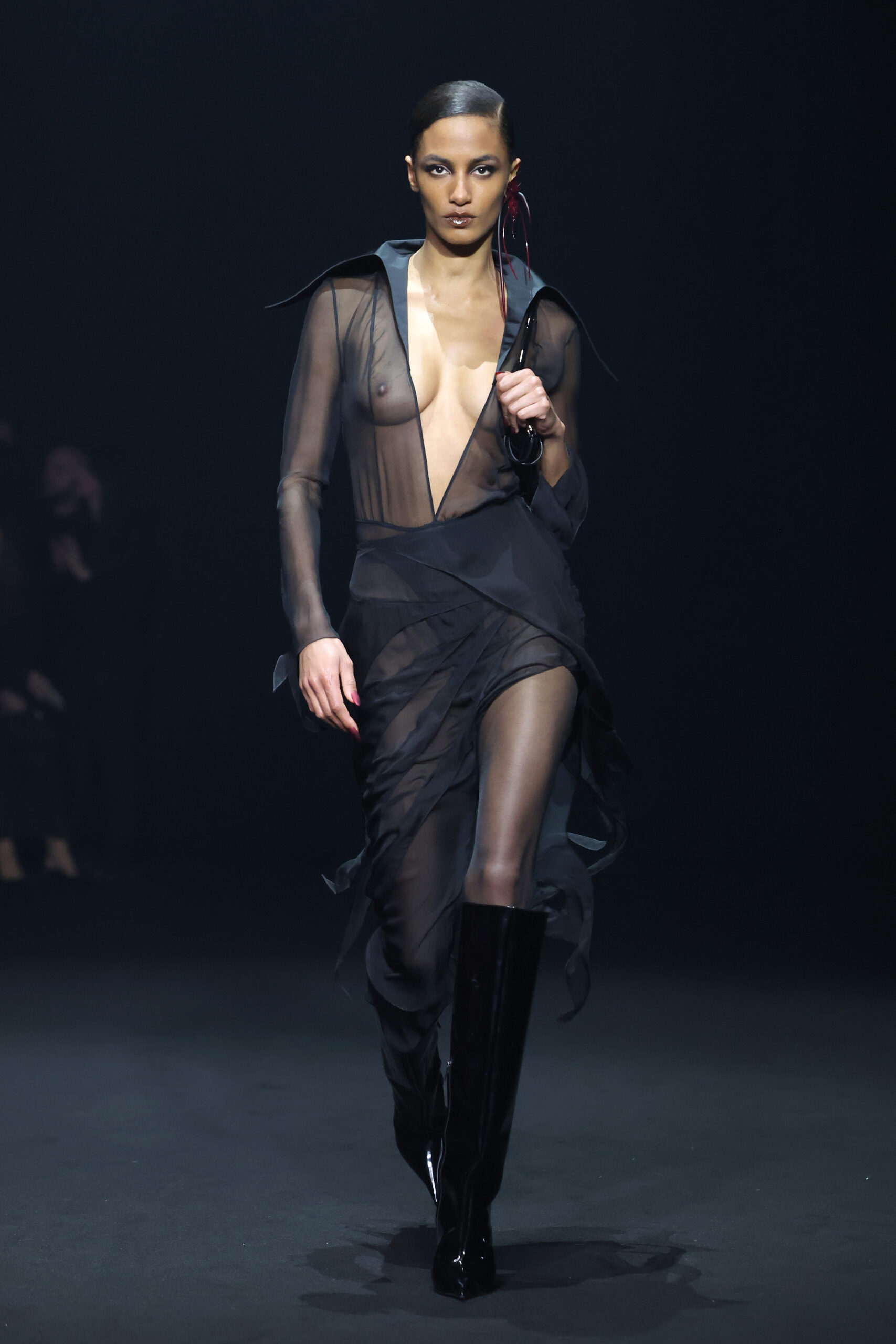
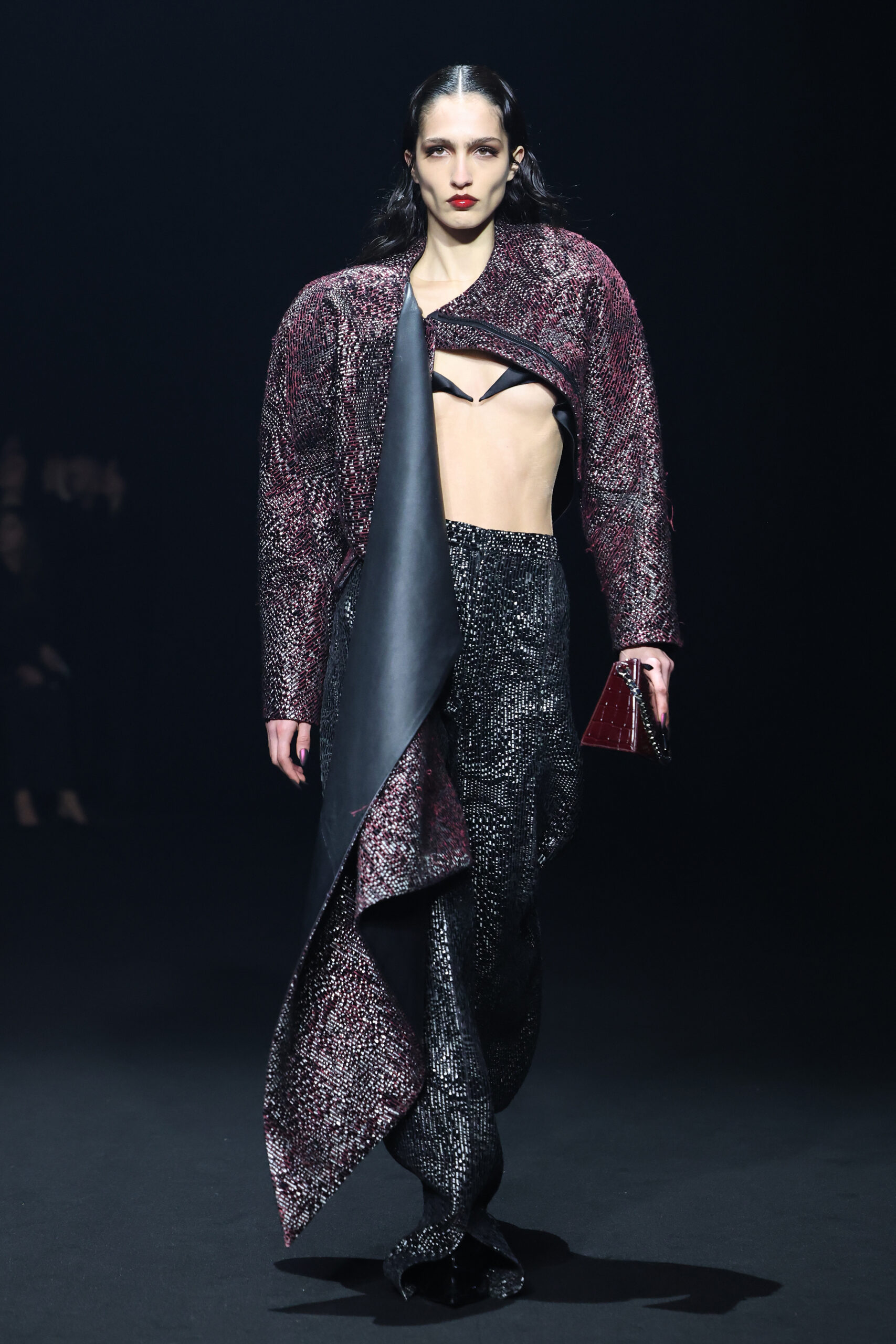
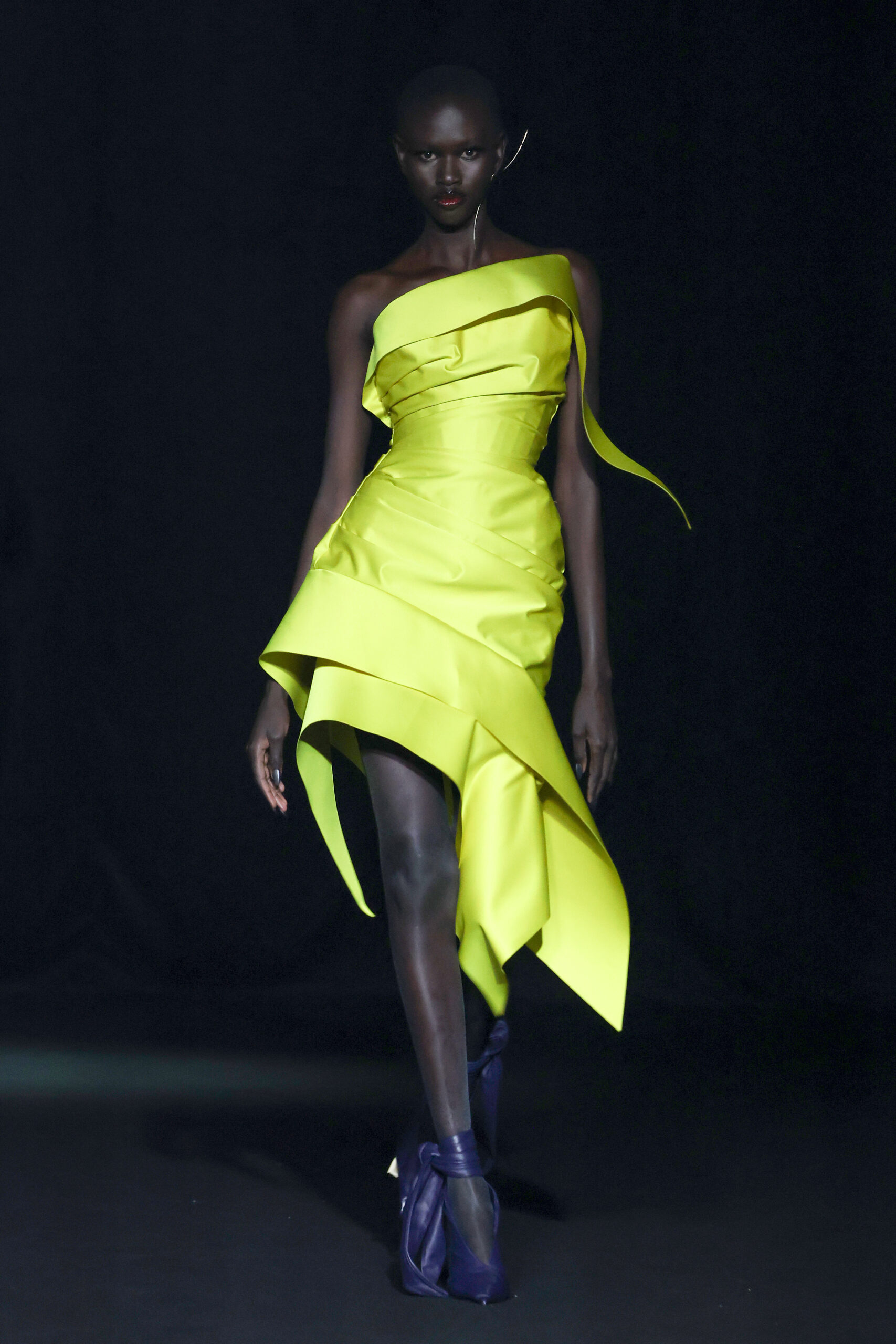
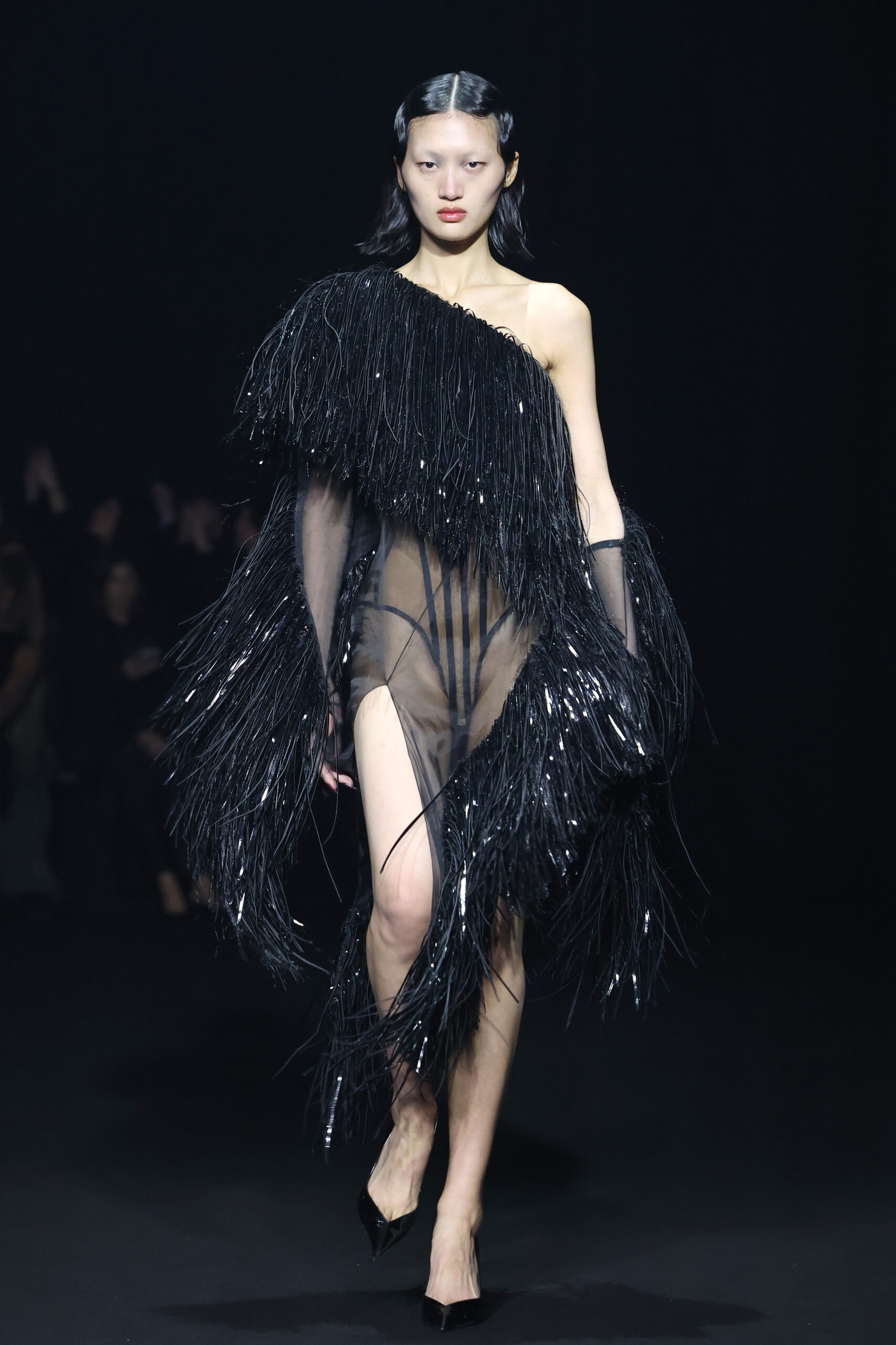
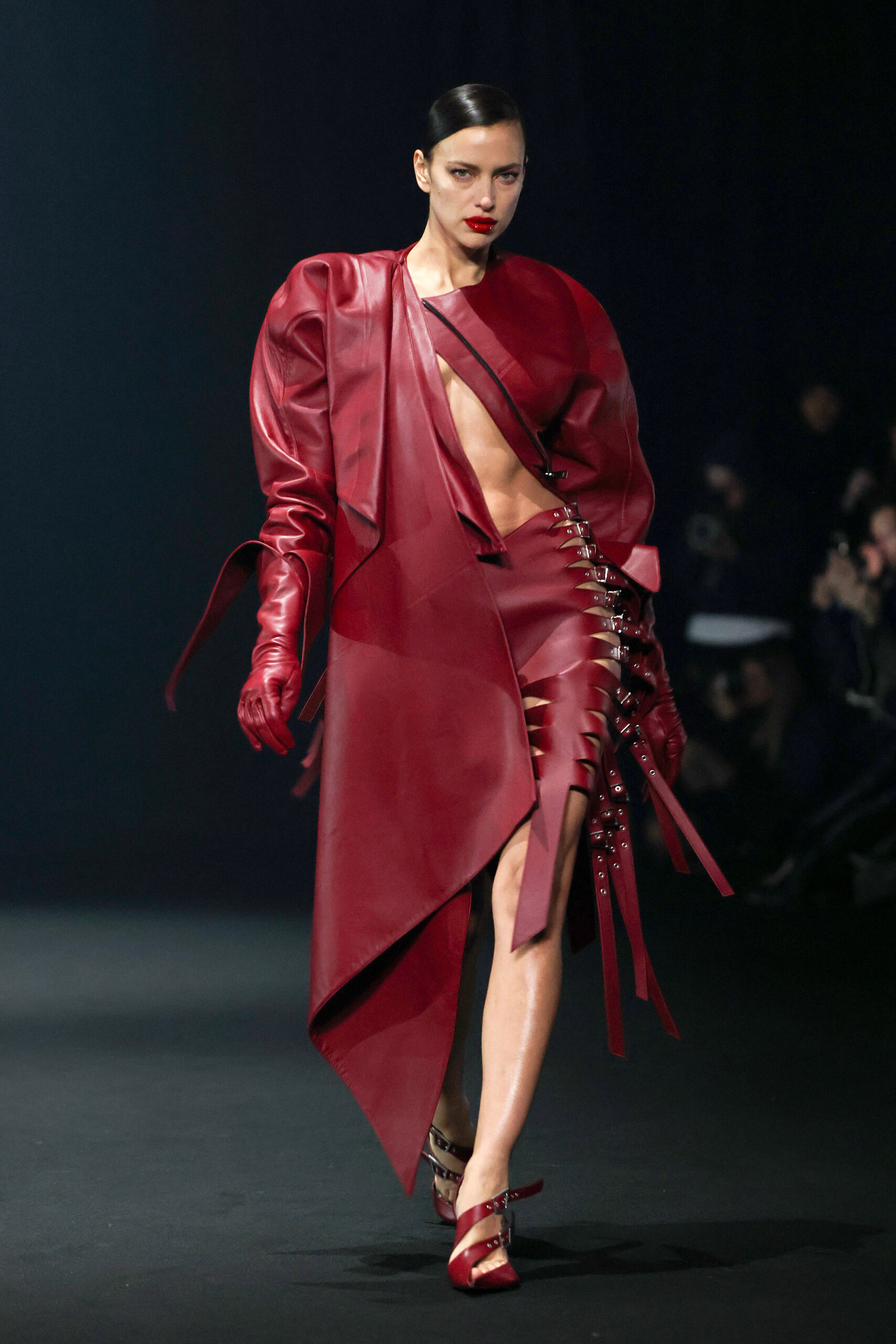
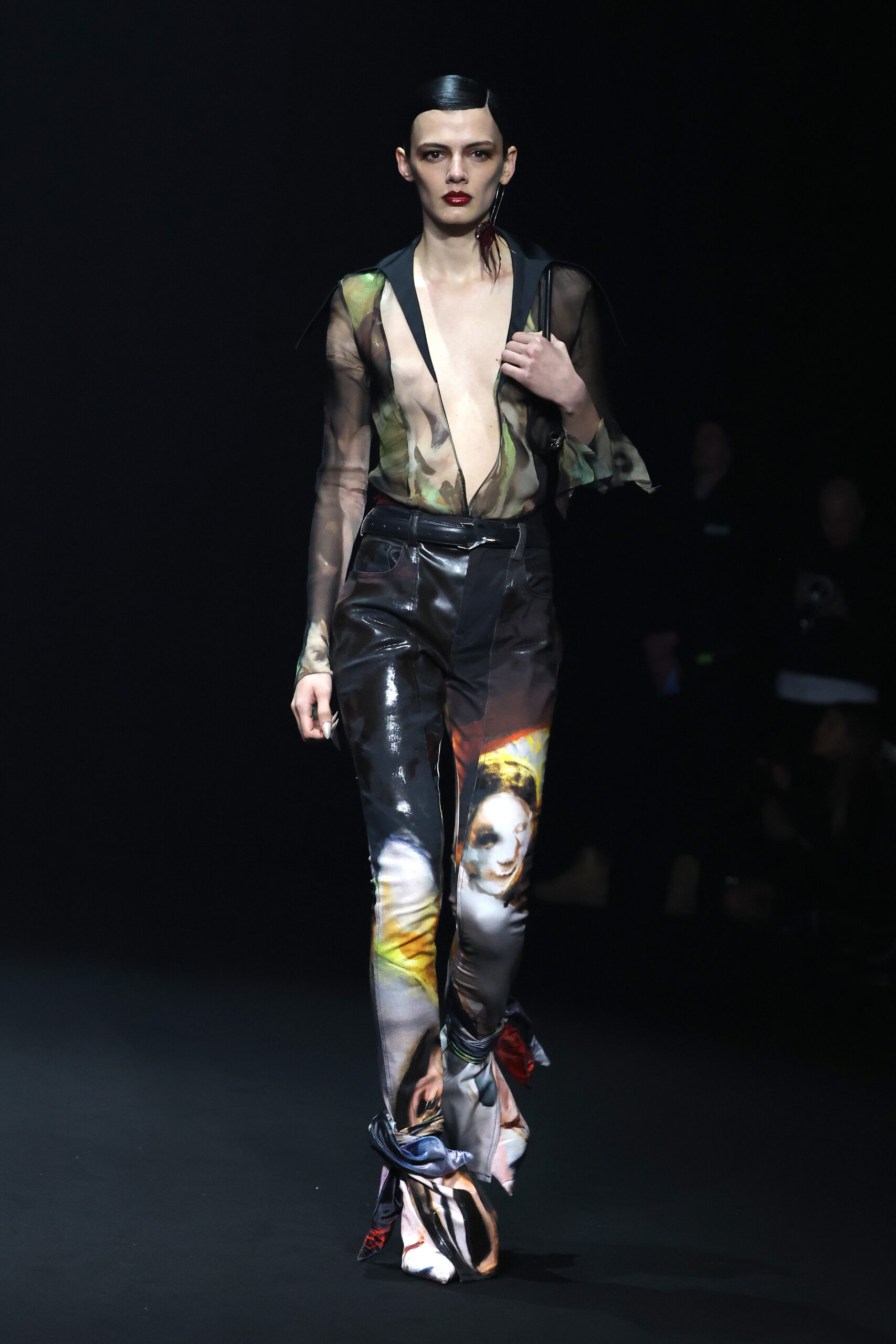
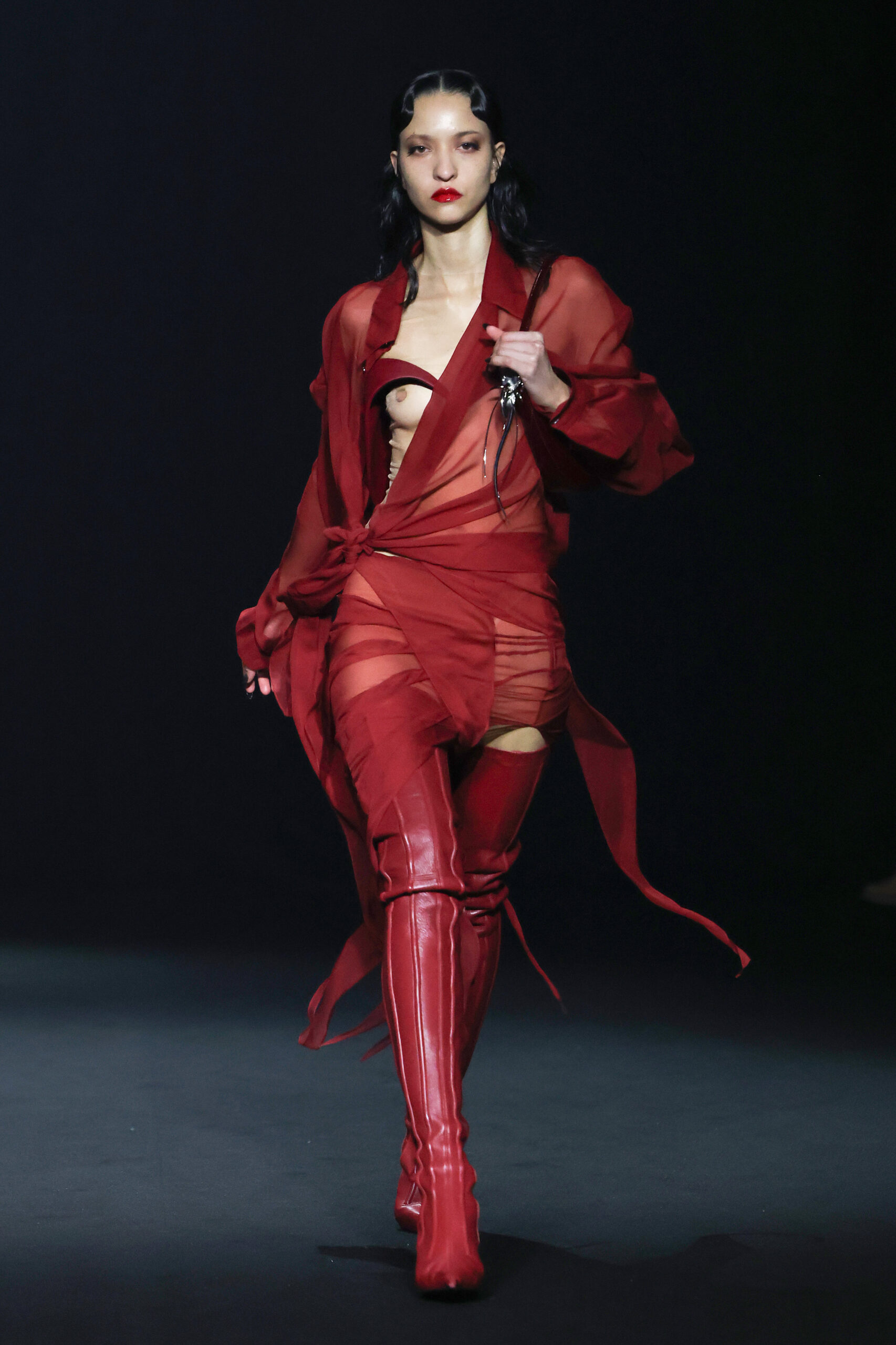
This story first appeared on GRAZIA International.
